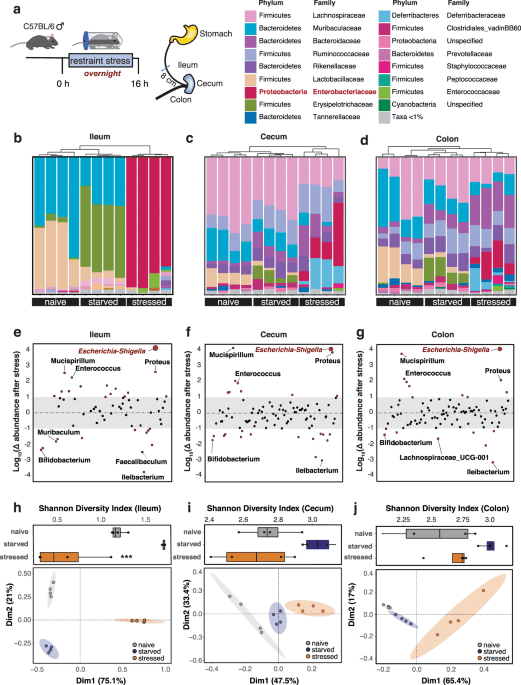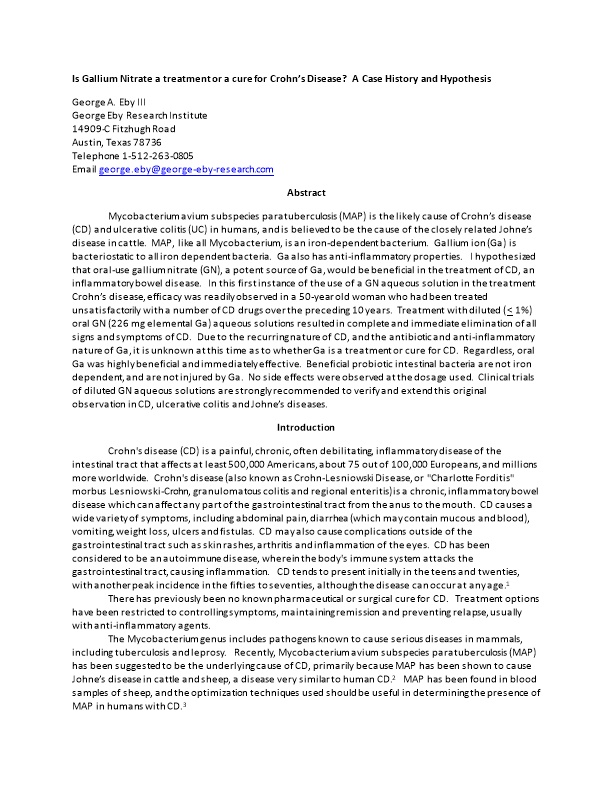Mito
Member
- Joined
- Dec 10, 2016
- Messages
- 2,554
“Researchers have identified a possible link between psychological stress and Crohn's disease. In a study led by Canada's McMaster University and the Farncombe Family Digestive Health Research Institute, and published in the journal Nature, the authors said that mouse models found that stress hormones suppressed the innate immune system that normally protects the gut from Enterobacteriaceae.”

 www.nature.com
www.nature.com
Abstract
Crohn’s disease is an inflammatory disease of the gastrointestinal tract characterized by an aberrant response to microbial and environmental triggers. This includes an altered microbiome dominated by Enterobacteriaceae and in particular adherent-invasive E. coli (AIEC). Clinical evidence implicates periods of psychological stress in Crohn’s disease exacerbation, and disturbances in the gut microbiome might contribute to the pathogenic mechanism. Here we show that stress-exposed mice develop ileal dysbiosis, dominated by the expansion of Enterobacteriaceae. In an AIEC colonisation model, stress-induced glucocorticoids promote apoptosis of CD45+CD90+ cells that normally produce IL-22, a cytokine that is essential for the maintenance of ileal mucosal barrier integrity. Blockade of glucocorticoid signaling or administration of recombinant IL-22 restores mucosal immunity, prevents ileal dysbiosis, and blocks AIEC expansion. We conclude that psychological stress impairs IL-22-driven protective immunity in the gut, which creates a favorable niche for the expansion of pathobionts that have been implicated in Crohn’s disease. Importantly, this work also shows that immunomodulation can counteract the negative effects of psychological stress on gut immunity and hence disease-associated dysbiosis.
Psychological stress impairs IL22-driven protective gut mucosal immunity against colonising pathobionts - Nature Communications
Altered gut microbiome and exacerbation of symptoms at times of psychological stress are feature characteristics of Crohn’s disease. Here authors show in a mouse model that psychological stress impairs IL-22-dependent protective immunity of the ileal mucosa, which allows invasive bacteria to...
Last edited:

